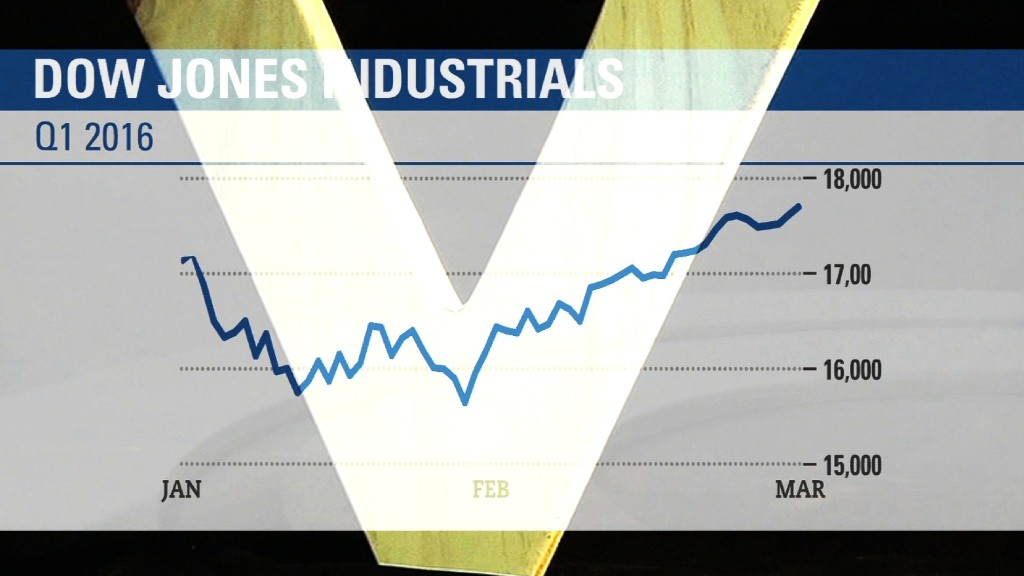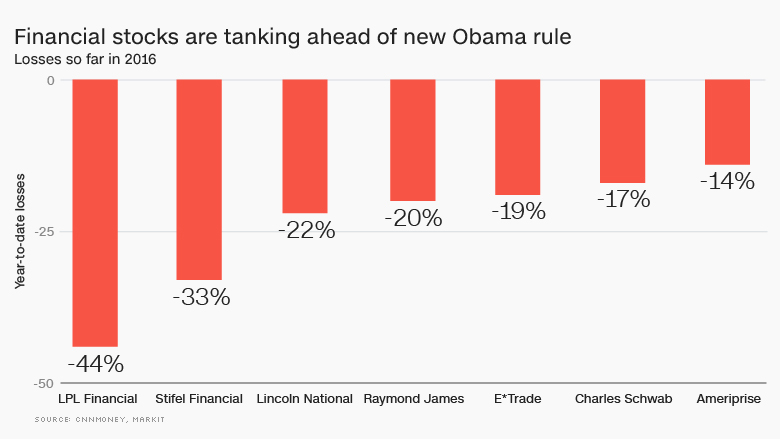
Work hard. Save a lot. Retire in peace. That's the goal.
People get derailed on their way to a happy retirement for many reasons, but the Obama administration says costly -- or outright bad -- financial advice shouldn't be what holds you back.
A new rule unveiled today by the Obama administration requires retirement advisers to always act in the best interest of their client.
"It's pretty obvious if people are expecting financial advice they should be able to count on the fact that it's going to be real advice to help improve your situation," says Bill Harris, the CEO of Personal Capital and former CEO of PayPal.
Many advisers genuinely want to help their clients. But currently, it is legal for an adviser to get paid more money (similar to a kickback) if he or she gets you to invest in fund A instead of fund B.
For example, an adviser might make $200 if he or she has you invest $10,000 in a stock fund but only $130 if he or she has you invest in a bond fund, according to University of Mississippi law professor Mercer Bullard. Advisers recommend the fund that pays them more about half the time, one study found.
"Brokers are salespeople. They sell whatever they and their firm make the most money on," argues Harris. His firm already abides by the rule. It charges clients a flat fee for advice so there's no conflict of interest.
Related: The safest place to stash your retirement savings
Wall Street is anxious about the rule
All these fees add up. Higher costs and lower returns cost American families $17 billion a year, according to President Obama's Council of Economic Advisers.
The new Obama administration rule -- known as the Fiduciary Standard -- is a big shakeup of the industry. Bullard expects a lot more firms to do away with the kickback-style payments to advisers and just go to a flat-fee model.
Wall Street is anxious about the change. Many financial firms' stocks plummeted in recent weeks as it became clear the White House was moving forward with the rule.
The stock of LPL Financial (LPLA), the nation's largest independent broker-dealer, has tanked over 40% this year. Charles Schwab (SCHW) and E*Trade (ETFC) are both down about 20%. Firms have until January 2018 to comply fully.
There are concerns that financial firms won't make as much money once the rule is fully in effect, but a recent Morgan Stanley report says the impact is likely to be "substantially less" than what the beaten-down stocks imply.

Related: 77-year-old trader: How I made a lot of money
Will the rule make advice more expensive?
A key concern is that the Fiduciary Rule could make advice more costly because of more legal paperwork and compliance expenses.
"If you need more assistance than [basic options], you're gonna get mad when you can't get the support you want," argues Jill Hoffman of the Financial Services Roundtable, an advocacy group for the industry.
Some Republicans have gone as far as to call the rule "harmful" in its current form.
"This rule would raise costs and limit options for people seeking advice on their retirement planning. This rule could hurt millions of middle-class savers," said Republican House Speaker Paul Ryan in March.
Advocates of the new rule push back. They point out that the explosion of lower-cost index funds and new online and app investing advice tools should keep costs down and ensure that middle class families get what they need.
"This rule is a huge win for the middle class," said Labor Secretary Tom Perez. "These rules will save affected middle-class families tens of thousands of dollars for their retirement."
Related: I went from Wall Street...to working at Waffle House
Put the client first
The rule has been debated since 2010. The White House says over 3,000 comment letters have come in from advisers, investors and financial management firms.
The White House claims it has listened and made the final rule less onerous, but it won't back down from helping the middle class.
"It's a very simple principle: You want to give financial advice, you've got to put your client's interest first," said President Obama.


